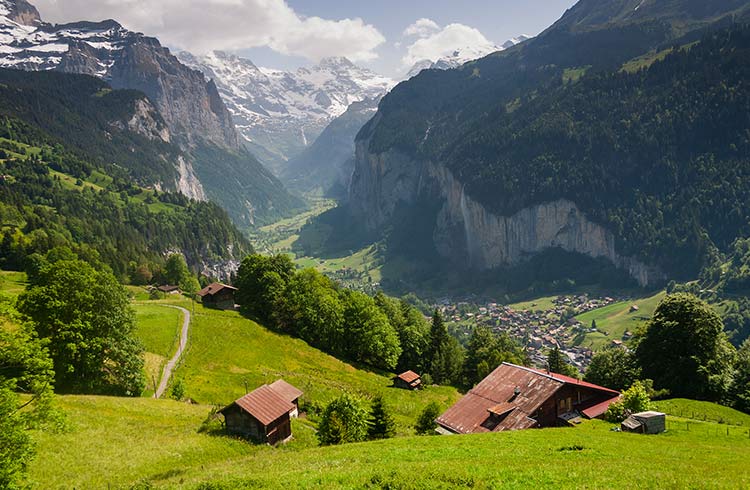Swiss Alps: How to Stay Safe in Switzerland's Mountains
Find out how to stay safe in Switzerland's beautiful mountains with these snow safety and alpine safety travel tips.
 Photo © Getty Images/Jekaterina Nikitina
Photo © Getty Images/Jekaterina Nikitina
The mountains demand your respect. Generations of Swiss have tales to tell about mountain rescues, from epic climbs to day trips that went tragically wrong. Don't become another one of those stories.
Switzerland has a comprehensive alarm system for hazards throughout the country, which include flooding and landslides. If an alarm is sounded in the mountains, citizens tune into the radio for advice on what to do.
Always plan a journey into the mountains and ensure you have clothing, food and water that are appropriate for the conditions, bearing in mind the weather can change very quickly. Tell someone where you are going and avoid walking alone.
Avoid dislodging rocks as you walk, as they can injure walkers below you. For any mountain activity it is advisable to ensure that your insurance has mountain rescue included and helicopter evacuation. In Switzerland this is considered the responsibility of the family and an uninsured rescue can cost in the region of $25,000.
Be aware when walking along river beds as there are a number of hydroelectric power stations and water often rushes through these areas suddenly.
Snow safety in Switzerland
Switzerland is synonymous with skiing and most vacations pass without incident.
Always ensure that your insurance covers you. With the increasing popularity of snowboarding and skiing comes the risk of one of the mountain's primary killers – avalanches. They're affected by a range of conditions including wind, temperature, gradient, and type of snow crystals, so it takes a high level of skill and experience to understand the risks (which you most likely don't have!).
There is an assumption that avalanches mostly strike people off-piste, which is correct. However, the most innocuous-looking slope can be treacherous in the wrong conditions.
If you are planning to ski off-piste, you should carry an avalanche transceiver, shovel and probe. A mobile phone is also useful. There's a 90% chance of survival if the victim is found within 15 minutes, which is why you need the rescue equipment now, rather than waiting for help to arrive.
If you're going to be a regular off-piste skier, do an avalanche survival training course.
Respecting Swiss culture
It's intrinsic to the Swiss culture to help one another and is actually an offence not to go to the aid of a fellow citizen. But, the Swiss are also experts in not being a nuisance to others so it's expected you'll be prepared to care for yourself in any situation. Make sure you have the correct equipment.
Simple and flexible travel insurance
You can buy at home or while traveling, and claim online from anywhere in the world. With 150+ adventure activities covered and 24/7 emergency assistance.
Get a quote
No Comments